Lessons on life from the Chicago band that can do it all
It has undeniably been a tough quarter at DePaul University (only for the cool students, though.) In a school full of creative people, I believe there occurs a common feeling every once in a while—especially in the dreary darkness this city calls winter—to feel especially uncreative and unfulfilled. Sometimes we forget what pulled us into this enticingly dangerous reality of living in a creative field, to constantly be making something out of nothing. For those feeling this currently, as I have for an uncomfortably long time (or those just curious about how to help your depressed artist friends), here’s someone who might help.
- Photos by Varun Khushalani.
Robot Heart Throb’s origin is a familiar one, but still powerfully simple. The genre-fluid band began because Jared Hochberg wanted to play the songs he was writing about life with others. Hochberg comes from a prestigious musical upbringing. His father used to run the guitar program at the Old Town School of Folk Music, the biggest music school in Chicago, and in the country. While studying at Oberlin College, he began to rebel against the result-based nature of a conservatory education; “In school, it’s very much like, do this assignment, and if you love it, that’s a little benefit—but it’s about the assignment.” To alleviate these feelings, six years ago, he started ArtNight, an event/collective that’s still running, where people can share what they are passionate about. “It can be juggling, pickle-making, hummus-making, soccer, photography, anything. And the whole idea was that it’s all about doing what you love.” These themes came up repeatedly: the call to music or creativity, the need to express yourself and the ability to nurture that need into actually making art. From our conversation, it was clear how much the music and artistry meant to him. “I met several of the members playing jazz in high school in the suburbs of Chicago, and basically needed an outlet for the songs I was writing.”
“I don’t know if some people are really resilient, go to school and study art and not get f—d with, but that was not me.” —Hochberg on his conservatory experience
“I don’t know if some people are really resilient, go to school and study art and not get f—d with, but that was not me.” —Hochberg on his conservatory experience
- Photo by Varun Khushalani.
Hochberg is certainly a well-equipped musician. A keyboardist, bassist, drummer and another vocalist accompany him in the band. On stage, he has a guitar, saxophone and two mics standing at attention, ready to be used when the moment calls for it. Classically and jazz-trained on saxophone, he has, what he described as, “the canon of jazz” behind him. I got the chance to witness this interesting blend of musical acumen on Saturday, Feb. 17, when the band played at the Cobra Lounge, a local music venue in West Loop located on the corner of Fulton Street and Ashland Avenue. The venue, hidden behind a bar, was a dark room with a low ceiling and overhead lights casting a red haze over the entire space. The crowd for the whole set that night was sparse, but attentive. At one point during the opening show of Pulitzer Priceless, their lead singer, Scott Diebel, jumped down off the stage and then asked the crowd to come closer. They obliged. That’s the type of show we were all in for that night.
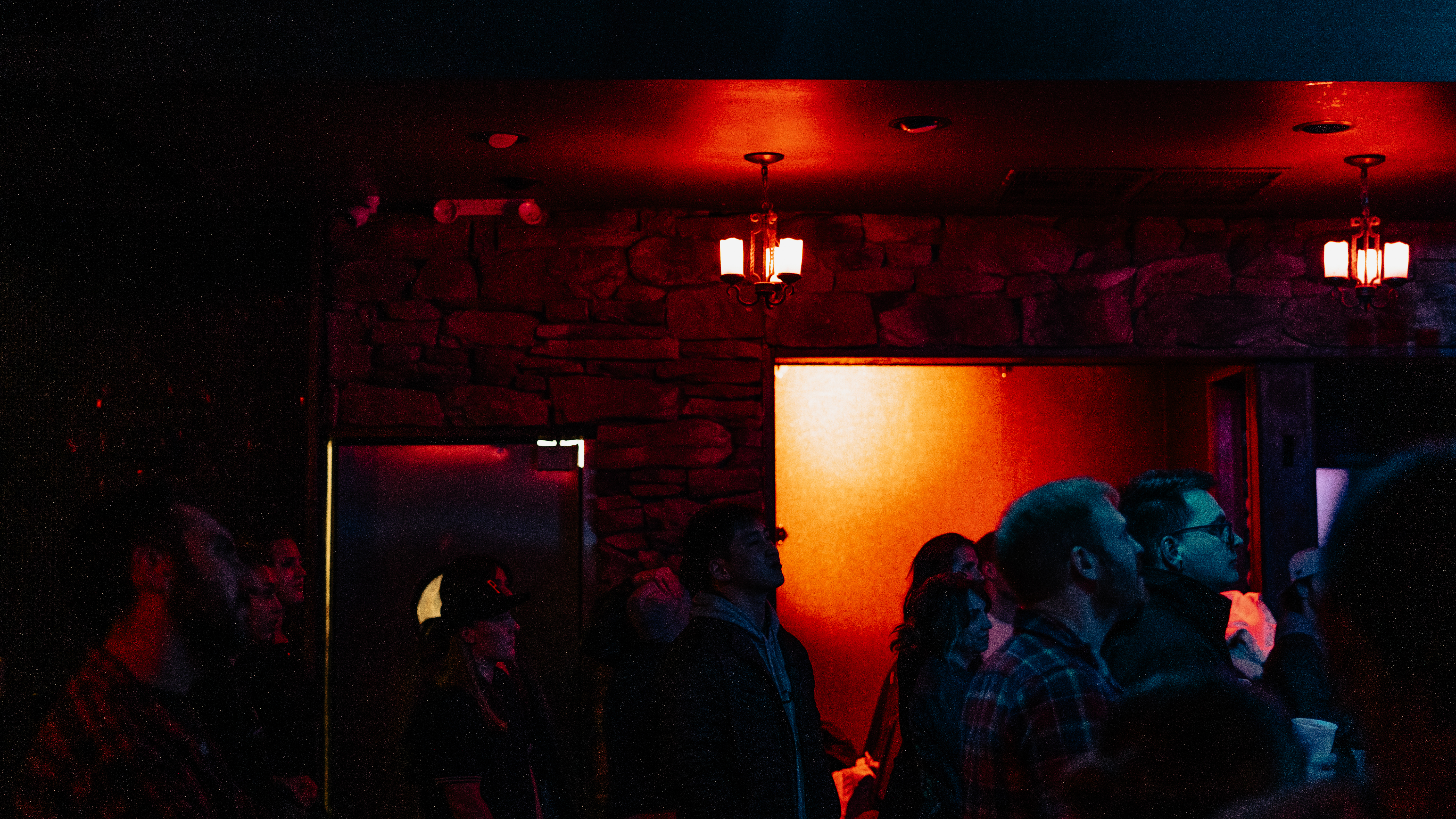
Photo by Varun Khushalani.
While Robot Heart Throb is based in Chicago, the band plays shows across the country. Hochberg’s shows in other cities have changed his perspective on Chicago, a city he wanted to escape from because he thought “no one came here.” As a novice in the local music industry, I didn’t realize how saturated this city is with good venues—and it wasn’t until our conversation that I realized the true allure and scale of Chicago’s local music scene.
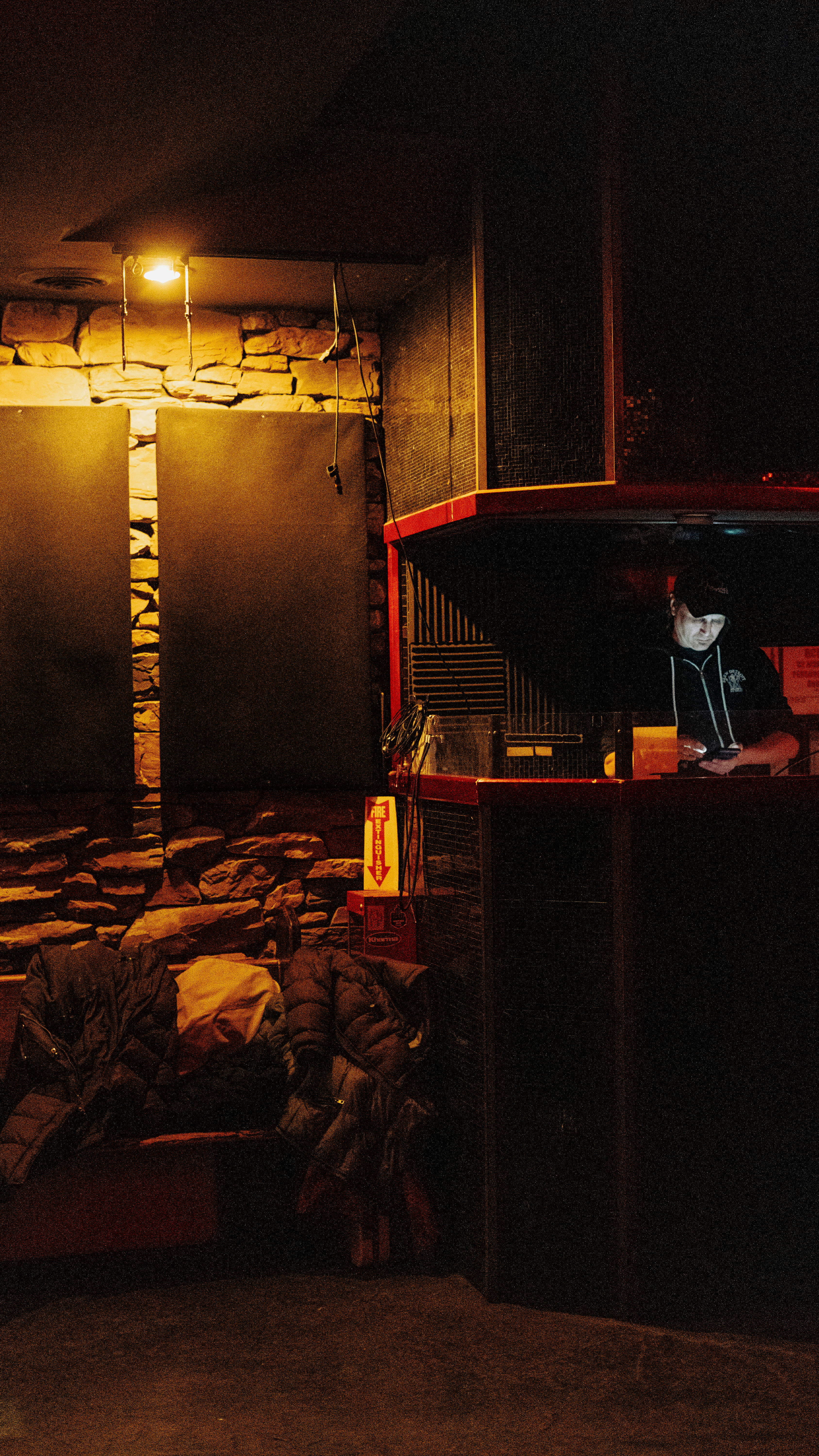
Photo by Varun Khushalani.
“I visited New York, Austin, Portland—all these cities this year to compare the music scene. Because I want to go wherever is the most beneficial to my career, right?” One of the large pressures of a creative career is the decision of where to start. Hochberg has an answer for this. “I realized that as a songwriter with TikTok, and Instagram, all that stuff, you could be in the middle of Missouri, and blow up and [then do] a sold-out tour. So now my philosophy is: live wherever you feel the most happy and inspired and comfortable, and I realized Chicago is f—g awesome,” said Hochberg.
Along with his love of Chicago for allowing him to be creative, Hochberg also has a distinct knowledge of its music venues. When I asked for recommendations, he gave more than a couple. Constellation in Roscoe Village for jazz, Schubas Tavern in Lakeview for indie, alternative music. Reggies is a classic Chicago spot on the east edge of Chinatown, with “stickers on every inch of the venue.” For those who like music and are under 21, the Jazz Showcase in South Loop is for you. His recommendation for the suburbs was Hey Nonny in Arlington Heights (shamelessly, I mainly asked for jazz recs).
- Photos by Varun Khushalani.
After this performance, Robot Heart Throb is planning to stop playing shows for a while. Hochberg described the strain that full band rehearsals put on the songwriting process: “With a band, you got to rehearse so much. So instead of rehearsing, I’m going to release new music.” If you want to keep up with Robot Heart Throb in the future, there is a newsletter you can sign up for. When talking about the future of his career, he described the two sides of the coin: the internal and external goals of music. “The internal is keep writing music, make meaningful art, play music[…] the external is f—g go on Tiny Desk Concert, touring the world. Like, get a Grammy.”
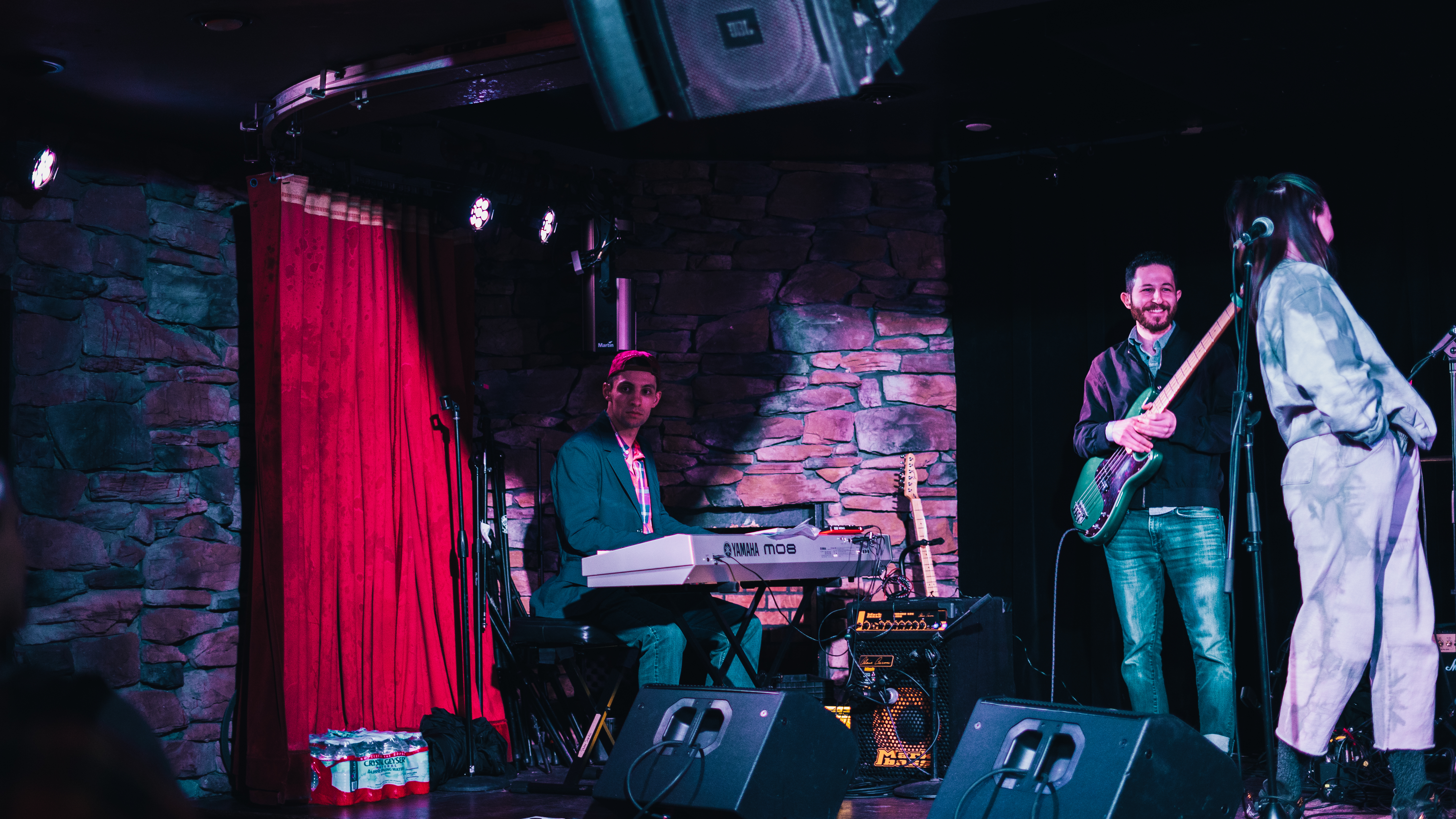
Photo by Varun Khushalani.
Before the show, I had a (rough and/or loose) list of questions I wanted to ask, but in the middle of their set, a question arose, one so simple that I wondered how I hadn’t thought of it before. I just wanted to know how he felt after doing something like this. He was wielding two instruments, singing with a whole band in a deceptively big room, with so many people right in front of him, looking up to them for a good time. He graciously opened up about this private moment with me, initially saying that he felt really good in that moment. But then he elaborated further. He described the show as grounding, that “songwriting is a very lonely process, not lonely but like, you’re alone. And then you finally bring it to people. You’re like, oh, this, this is why it matters. This is why I do it. Because it actually has an effect on people.”
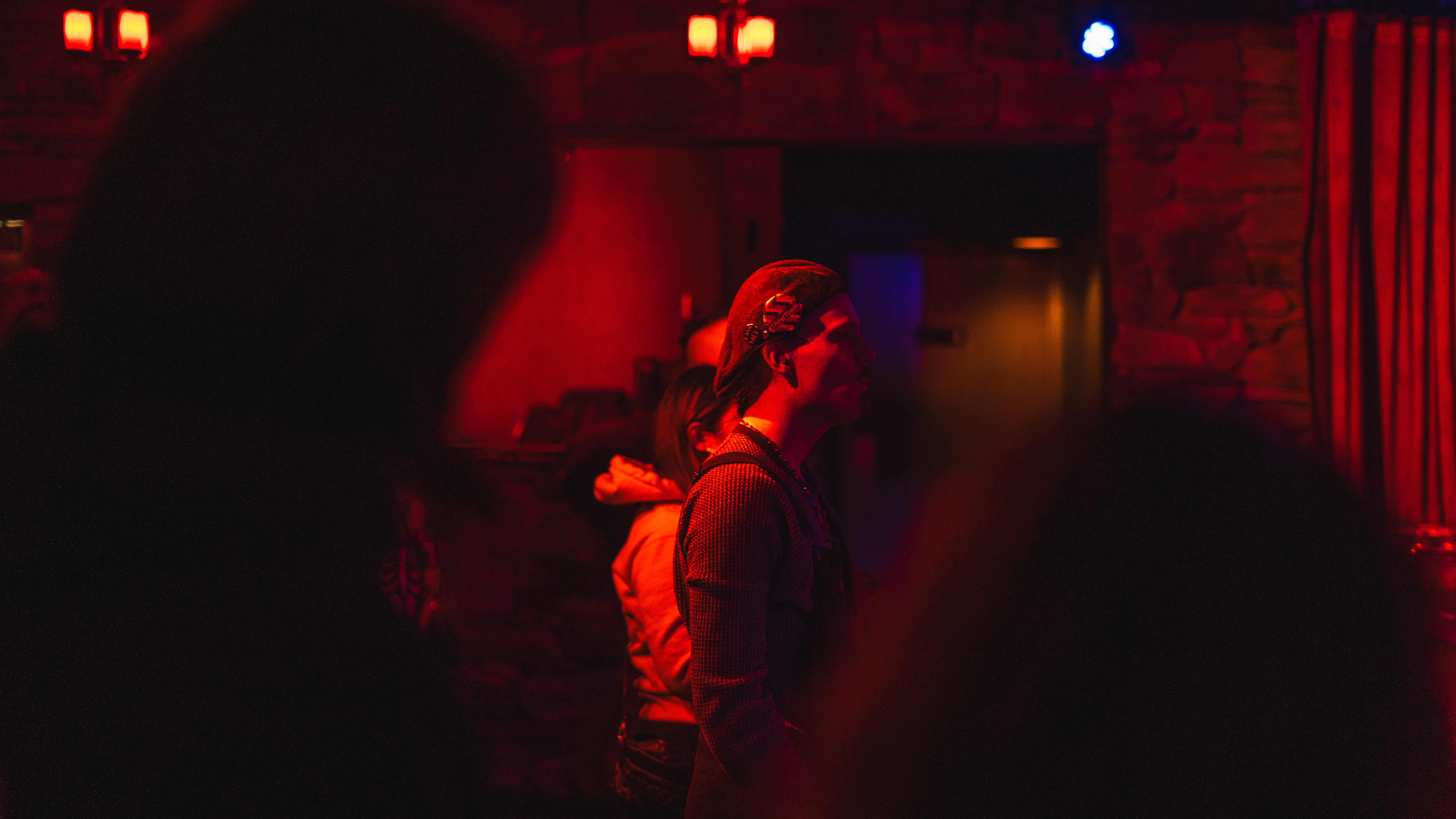
Photo by Varun Khushalani.
Ok, before I finish, there is one thing you should know. If you were to ask me to tell you how the actual show was, I wouldn’t be able to give you an accurate timeline. Trying to remember back to this show, I have no concrete memory of what occurred. I’m a photographer, so there’s one excuse—I had to at least take some photos. But I think there’s a better reason.
My brain shuts off in times like this because I’m so focused on capturing what is in front of me. I barely remember taking the photographs because the band felt so alive up there. In each spot I stood, I could so clearly see every member of the band, so deeply focused that it felt as if there was no one else in the room, just the music. So much frantic, chaotic motion was going on, I was wrestling with the camera in every angle, trying my hardest to match every setting for the right moment in that dark room, where everything lines up in front of you and all that’s left is to try and make sure the camera is pointed straight and hit the button as fast as possible. All I wanted to do was capture some of the band’s essence, those moments where it felt like they were leaping off the stage, overfilling the cramped room with their energy and enthusiasm. As I had to relisten to some of their music in order to write this, I instantly went back to the memories of that rowdy, small crowd, enamored with the energizing music that was coming from the band.
I was allowed to go on stage with the band for the whole show, but I only went up for two brief moments. The first was somewhere in the second song when I forced myself to get up once to at least get a couple of shots. The second was when Hochberg did what he called “peeling the tarp,” where he took his shirt off, began playing, then jumped into the crowd with his tenor saxophone.
I only went up a couple of steps to try and snap a quick photo (I was unfortunately unsuccessful). I was petrified of going up because if I ruined the flow and the energy of the band, I knew I’d never be able to forgive myself. It’s the worst sin of all … ruining the vibe.
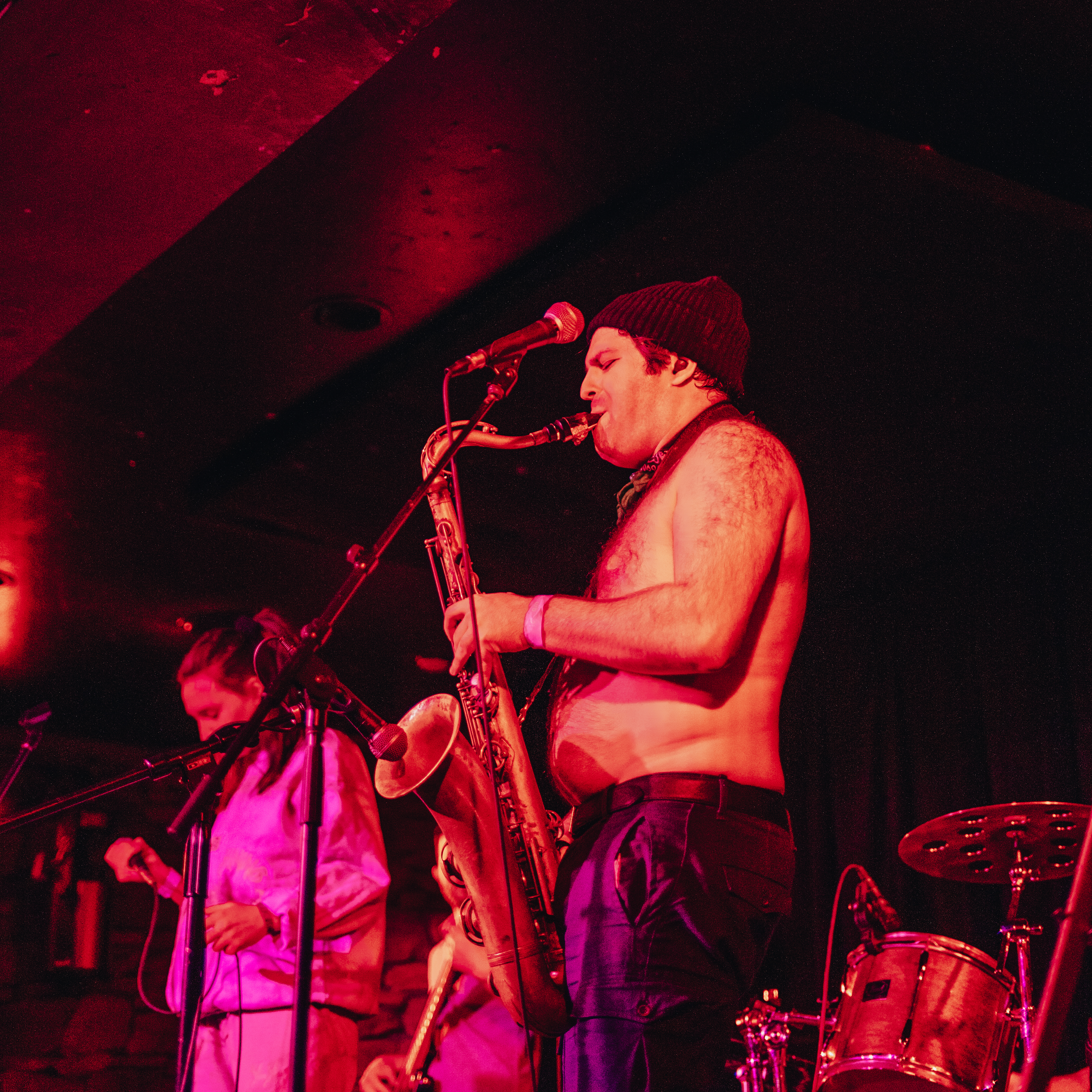
Photo by Varun Khushalani.
“I felt there’s a layer of authenticity to all of it where I believe what they’re saying the entire time, which is rare sometimes, and it was varied enough that it caught my attention the entire time.” —Scott Deibel, lead singer of Pulitzer Priceless
“I felt there’s a layer of authenticity to all of it where I believe what they’re saying the entire time, which is rare sometimes, and it was varied enough that it caught my attention the entire time.” —Scott Deibel, lead singer of Pulitzer Priceless
Regardless of their genre or music, if it’s your thing or not, that’s up to you. But I knew—and I hope everyone in the crowd that night knew—that something cool and important happened in that room. Robot Heart Throb did what, I believe, is one of the hardest things to do in life. For 30 minutes, those musicians, those creative people—those artists were undeniably themselves. Could you really ask for anything more?
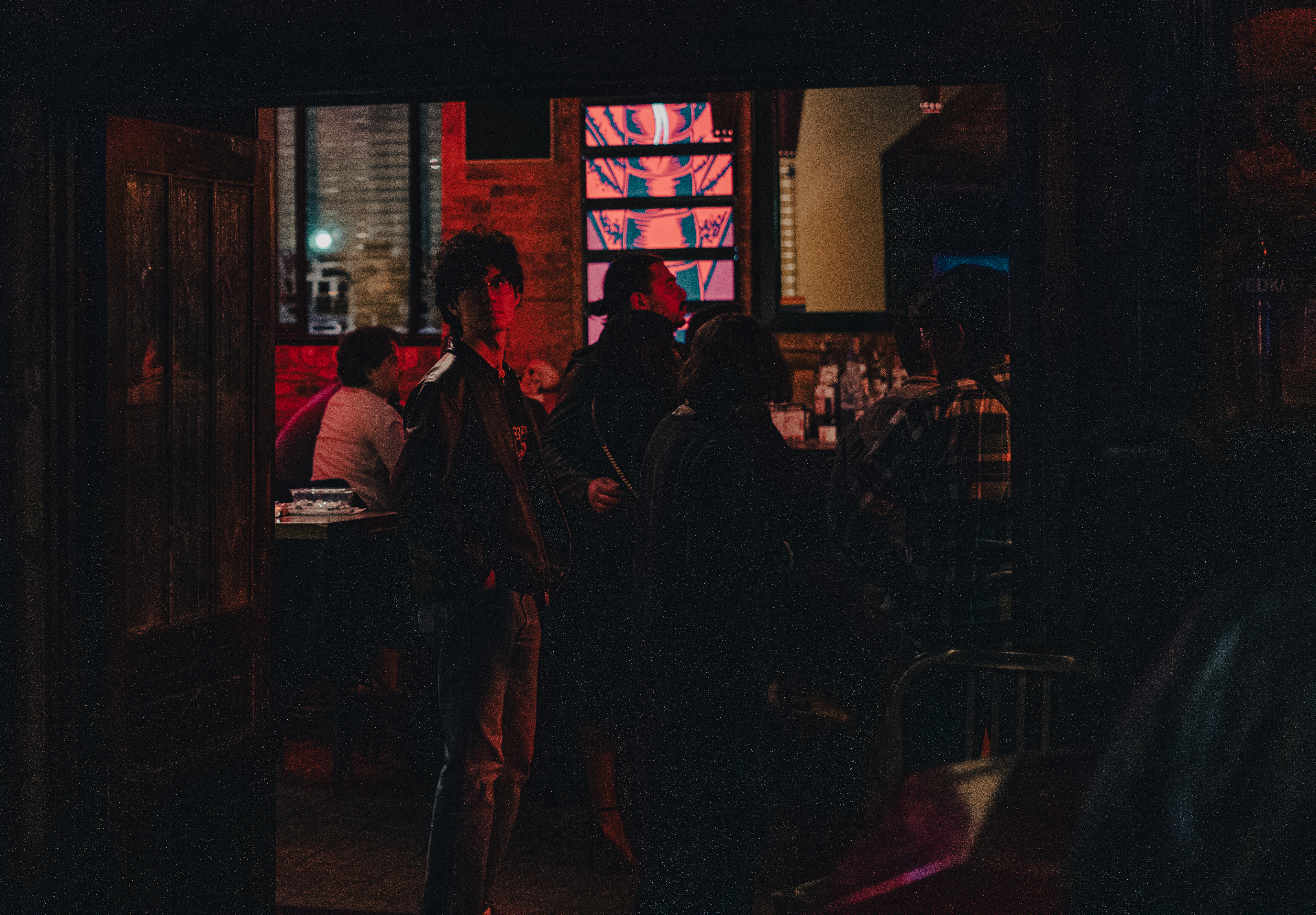
Photo by Varun Khushalani.
Header by Varun Khushalani


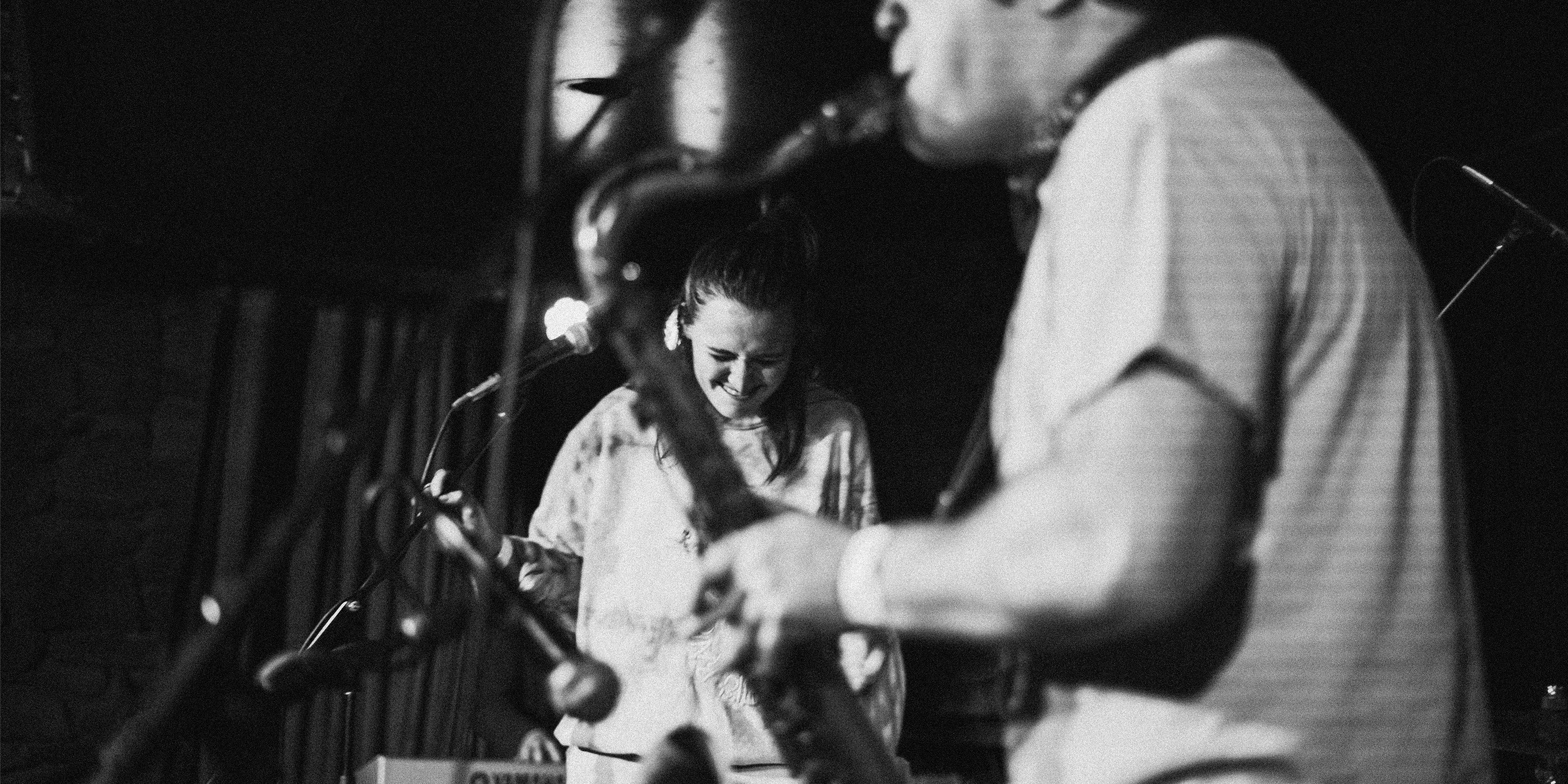
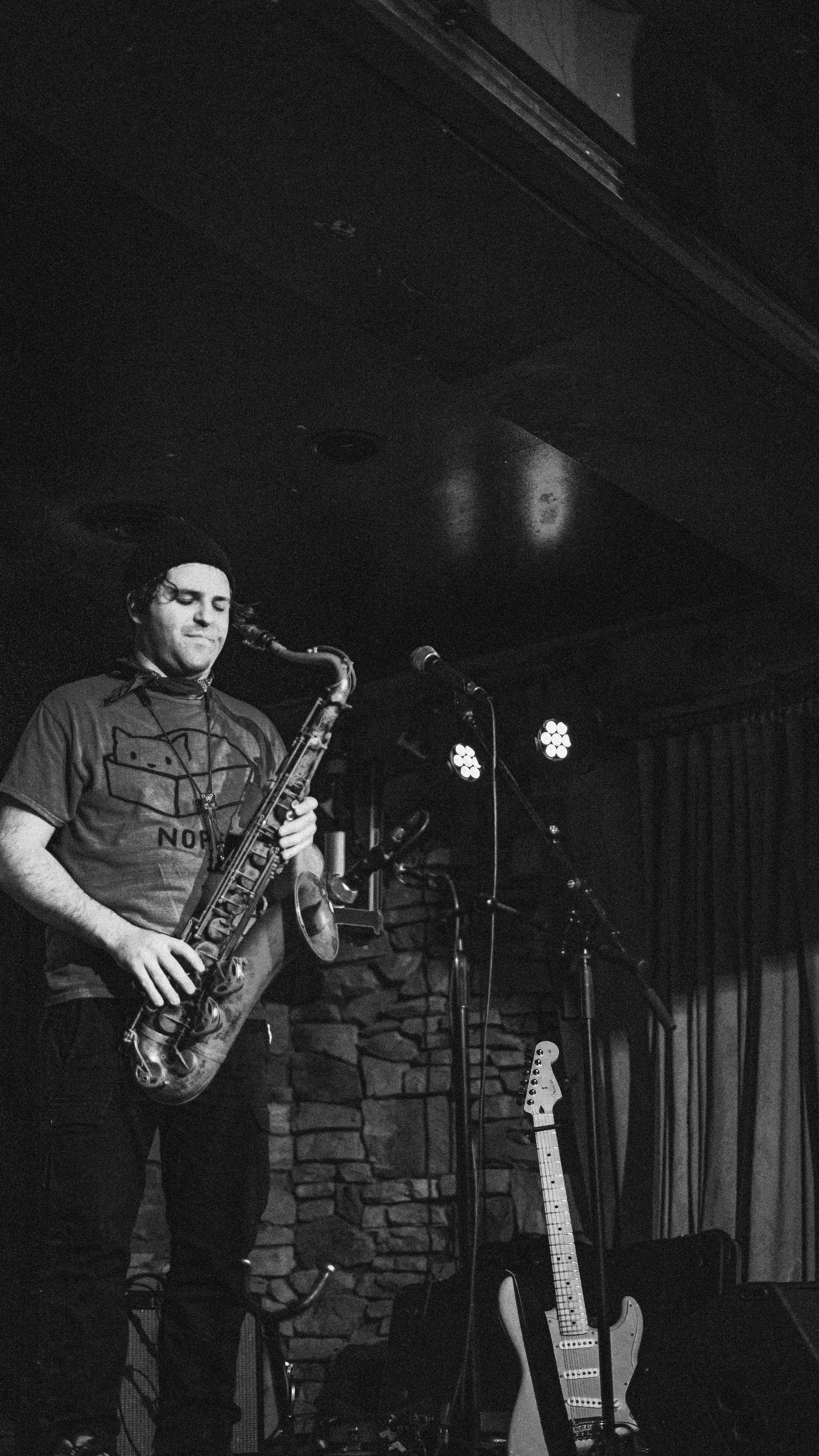
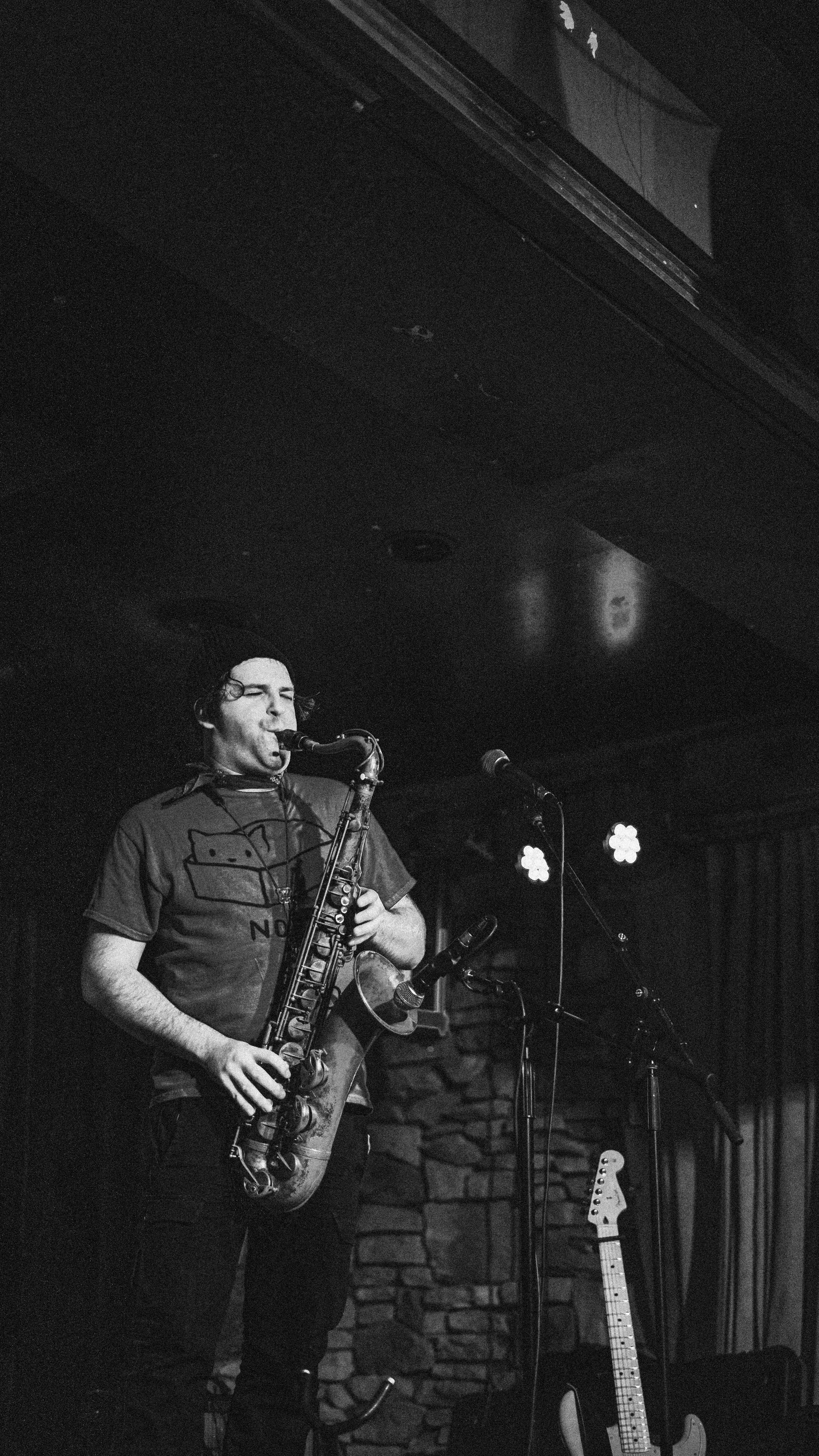
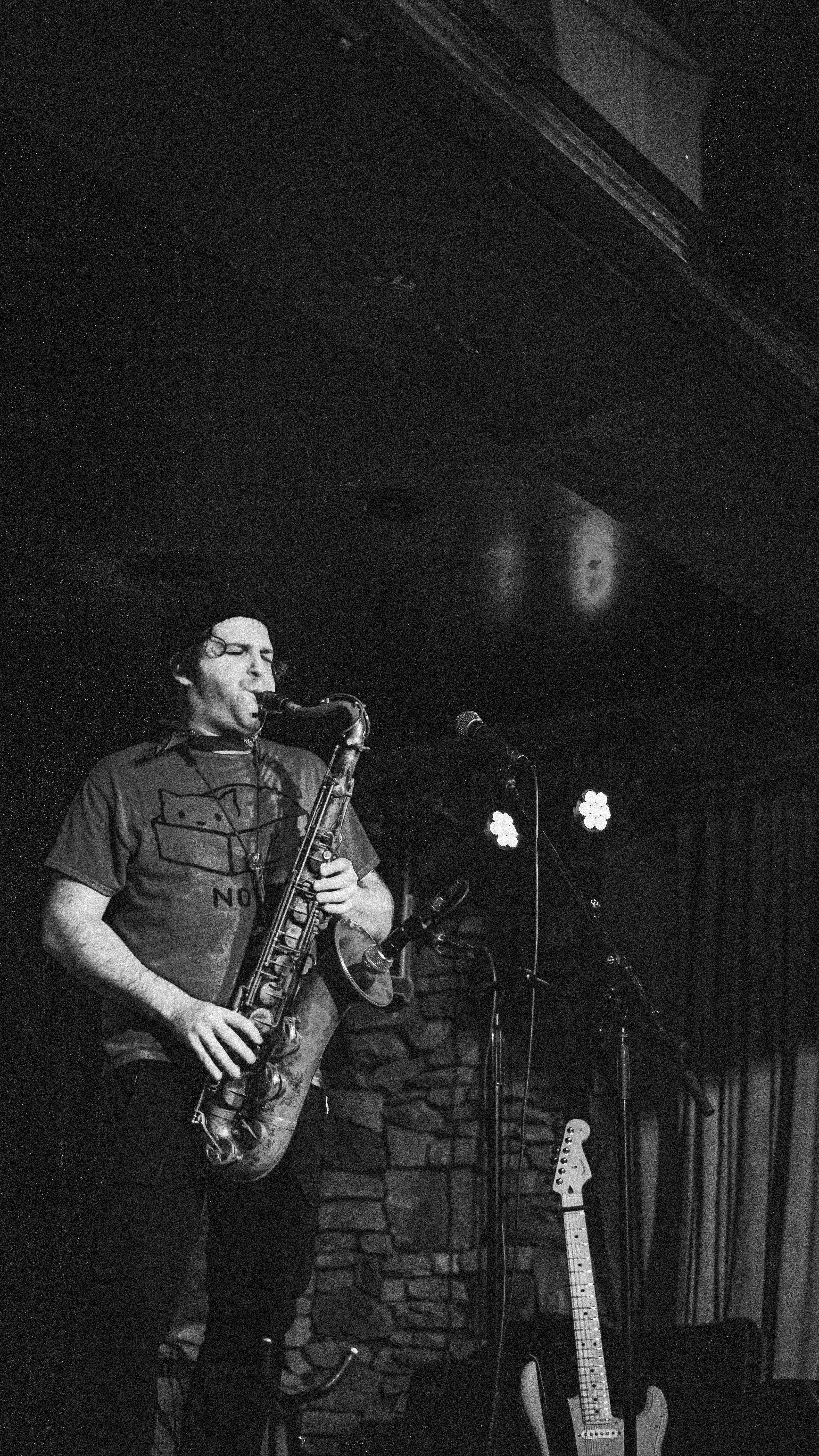
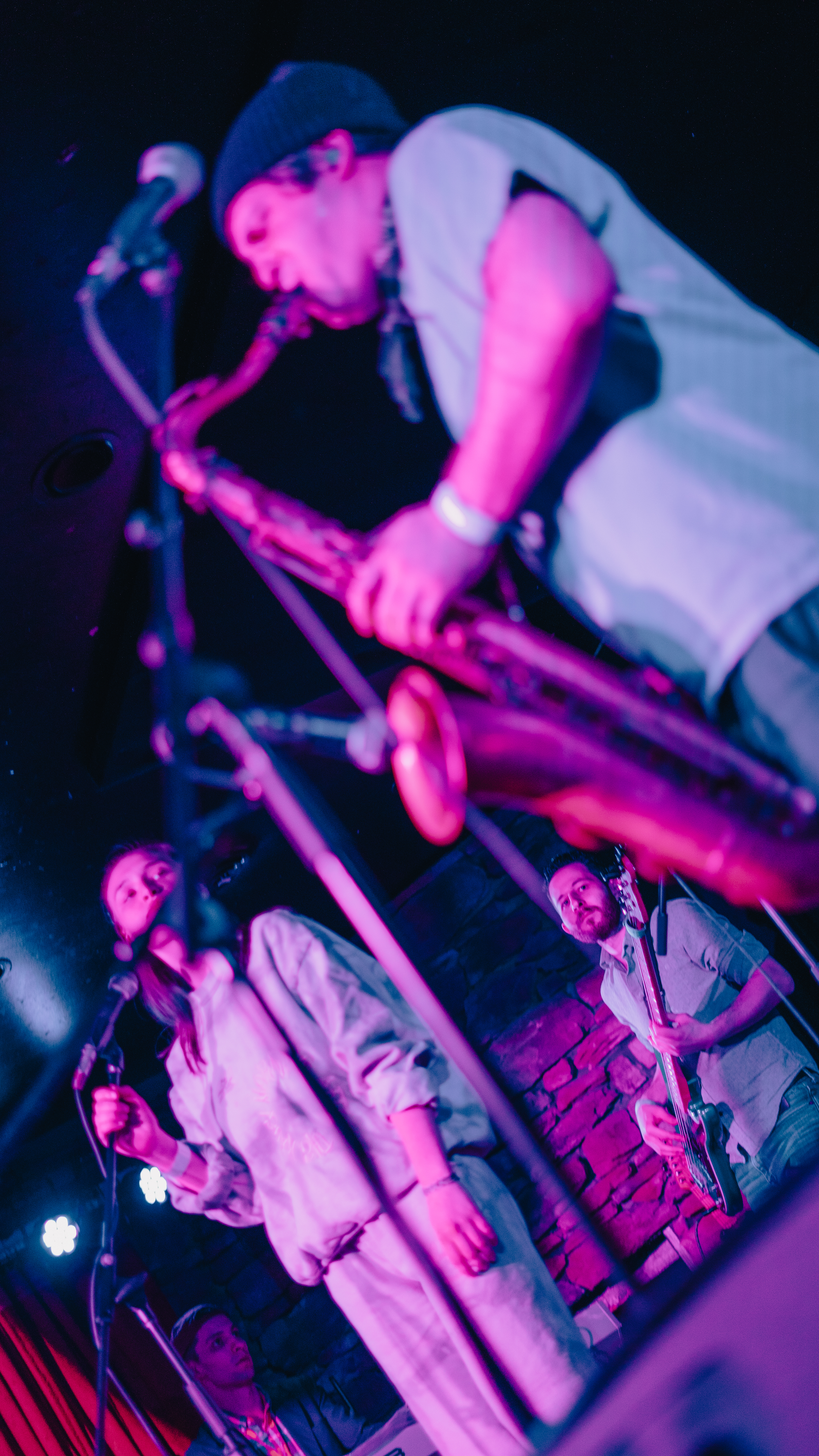
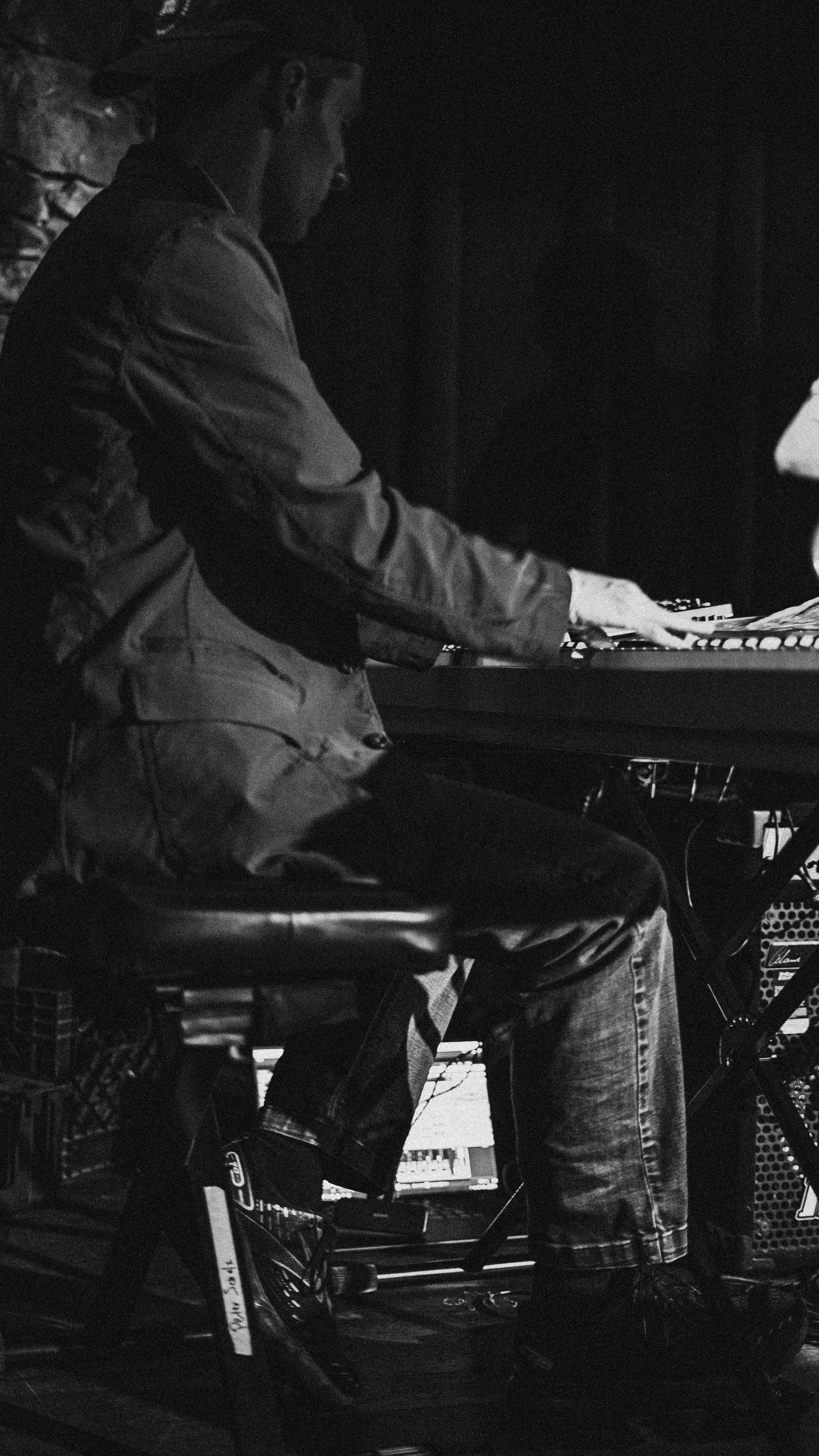
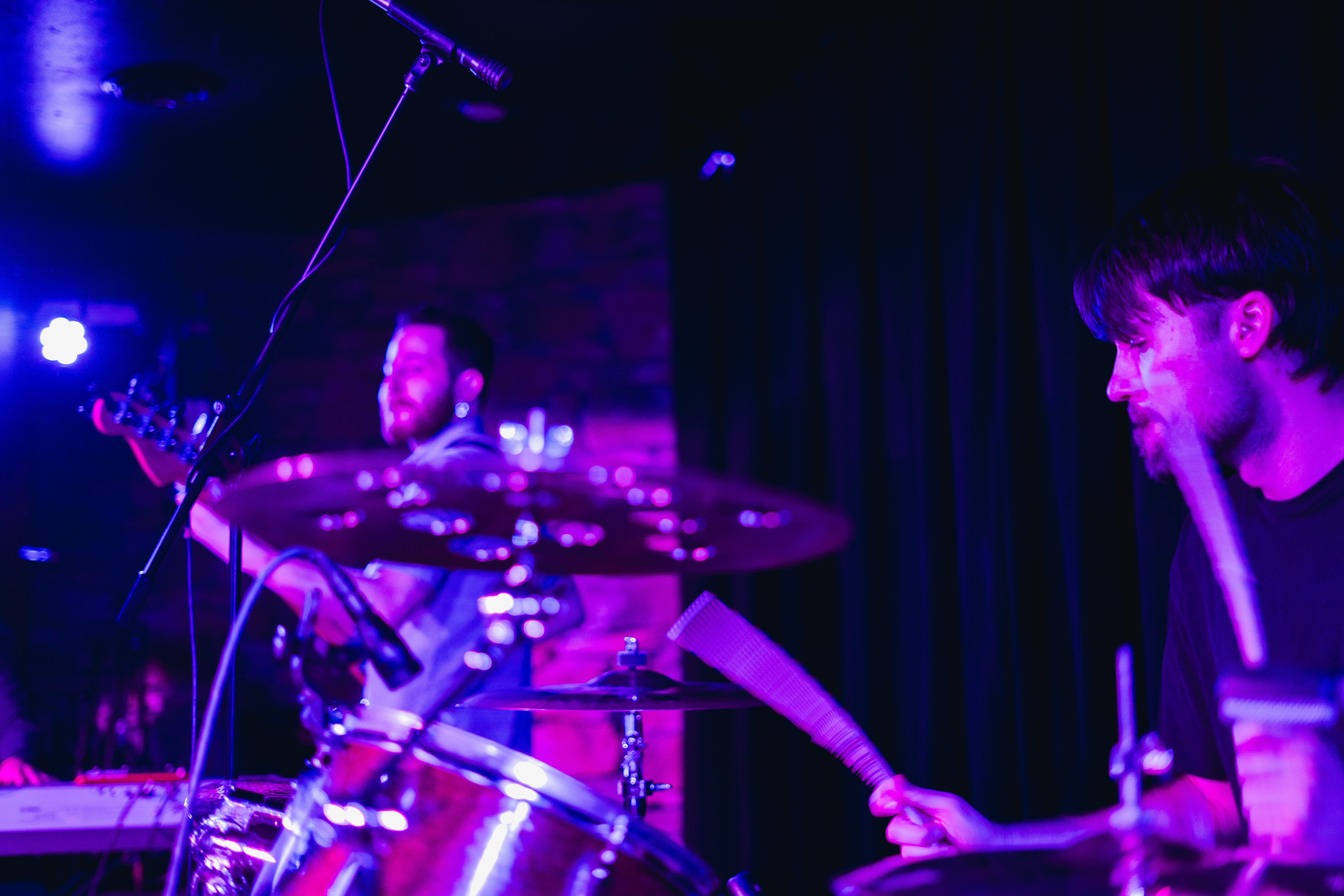
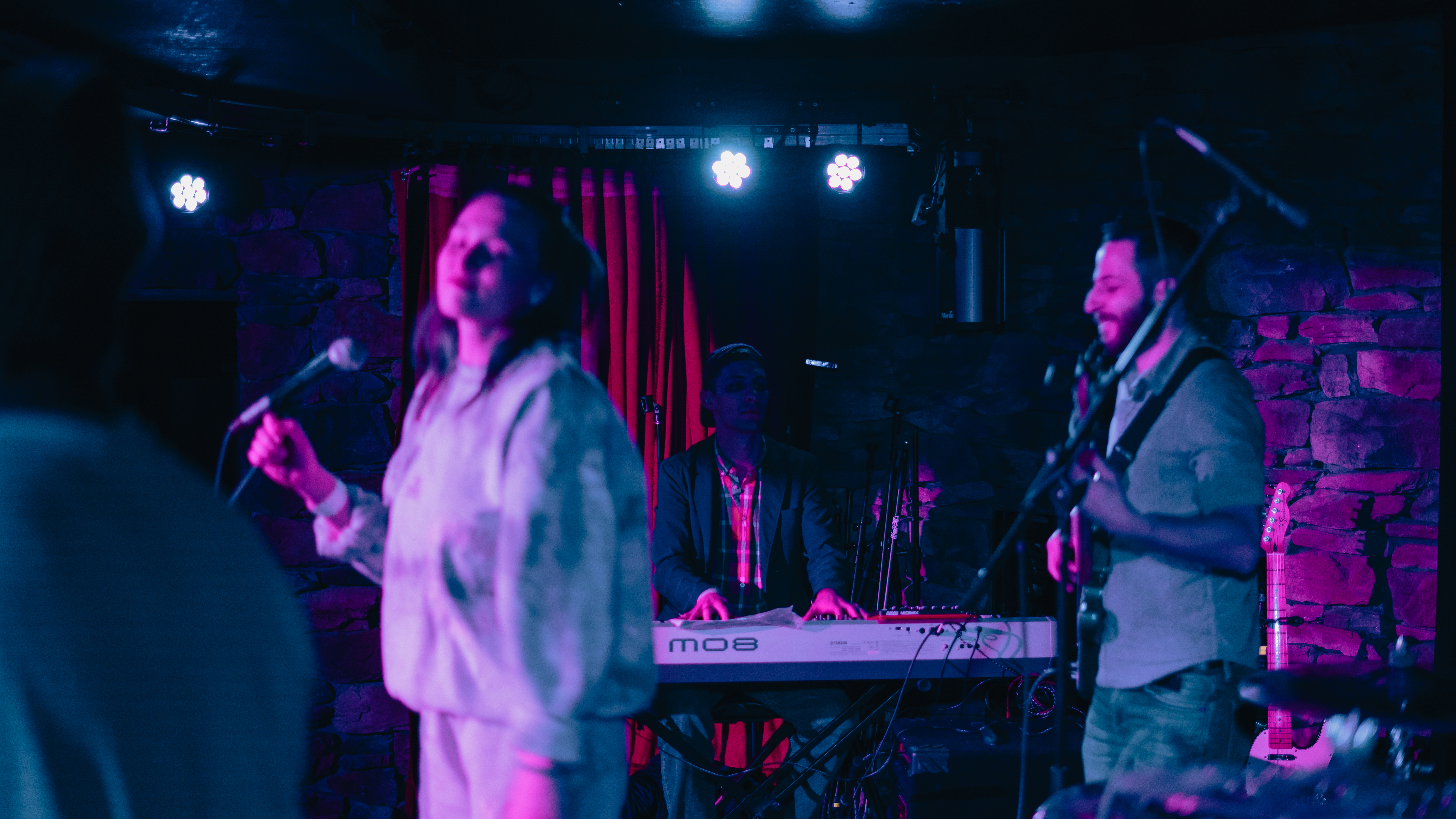

NO COMMENT